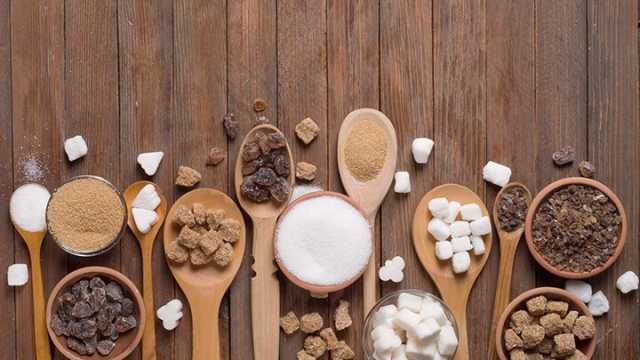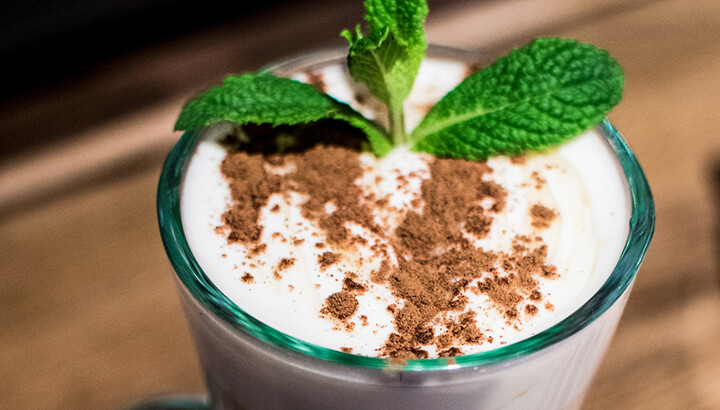
We’re all aware that sugar can have negative health effects. It can cause weight gain, obesity, and pave the way for diabetes and fatty liver disease. Consuming too much sugar can also have an undesirable impact on your hormonal balance. It can raise your cholesterol and contribute to heart disease. Because it releases dopamine in the brain, it can actually be addictive. And, as most of us have experienced, it can create spikes and valleys when it comes to our energy level.
But cutting out sugar can seem daunting, since the typical American diet is often loaded with foods that contain sugar. Frequently, that sugar may be hidden in the form of high fructose corn syrup in foods we don’t even think of as sweet. So what can you do to cut down on the sugar in your diet? Here are a few steps.
1. Eat regularly
For many of us, blood sugar is a major factor in our sugar consumption. When we go for long stretches of time without eating, our blood sugar drops and we feel hungry. This is when many of us crave sugar the most. But eating every few hours will help to keep your blood sugar stable. You don’t have to eat a lot — and it certainly doesn’t need to be a sweet food. But high quality, whole food snacks here and there will help to curb your hunger and your sugar cravings.
2. Eat breakfast

It’s true that many of us have busy mornings, and we often find ourselves rushing out the door to get to work or school. So it’s easy to understand why some of us choose to skip breakfast. But if you do this, you’re just setting yourself up to fail when it comes to cutting down on sugar. For most of us, our blood sugar is lowest in the morning. So if you don’t eat in the morning, you’ll likely be starving by lunchtime, and more likely to eat sugar. Also, if you skip breakfast, you might find you have less energy, which may mean you turn to coffee for a quick boost. And of course, many of us sweeten our coffee with sugar. You’ll want to skip breakfast foods like cereal and pastries that are high in sugar.
3. Go with whole foods
As mentioned above, many processed foods — like crackers, for example — often contain high fructose corn syrup (HFCS), although we may not even think of them as sweet. And many of the processed foods that do taste sweet contain far more sugar and HFCS than we may realize.
To avoid consuming “unseen” sugar, it’s best to try to cut out processed foods as much as possible and choose whole foods instead. This will have a wide range of health effects, as it will mean you’re also likely cutting down on trans fats, food coloring, refined carbohydrates and a whole host of undesirable artificial ingredients.
4. Avoid artificial sweeteners that taste like sugar
It seems at first to make logical sense that artificial sweeteners would be better than sugar. But this is not actually the case. In many instances, they may be even worse. In fact, recent science suggests that artificial sweeteners may in fact be associated with weight gain and diabetes, as they worsen your sensitivity to insulin even more than sugar. It is also believed that artificial sweeteners disrupt your gut flora, and may even be associated with Alzheimer’s disease.
Instead, try sweetening beverages with raw honey, and use fruit as a sweetener in recipes, especially baked goods. While both of these contain sugar, it is a natural form of sugar that is less harmful to your body (although you will still want to be mindful of your consumption).
5. Make the most of spices

Sugar isn’t the only way to get a “sweet” sensation from your food. Spices like cinnamon, cardamom and cloves can help make your food and drinks seem sweeter. Think about pumpkin pie or chai lattes — it’s largely the spices that make them so tasty. Of course, if you’re used to very sweet foods, it won’t be quite the same, but it will make your foods tasty and help smooth the transition away from sugar.
6. Explore the underlying issues
As you’re probably aware, emotional eating is not uncommon. Often, we turn to food as a coping mechanism. We use it to sooth ourselves, or to numb out from the challenges that exist in our lives. If this is the case for you, it will likely be more challenging to cut out sugar, because there is something deeper going on that’s causing you to consume it in the first place. If you suspect you may be eating emotionally, it might be a good idea to work with a therapist or coach.
7. Have more fun
It’s often said by coaches that we turn to sweets because we don’t have enough “sweetness” in our lives. So many of us lead very stressful lives. We wake up early, hurry off to work, come home and attend to errands or family responsibilities and crash into bed — only to do it all again the next day. But we are not robots. We are meant to enjoy our lives. And if we’re not getting that enjoyment, we often try to find it in food. So scheduling in time for yourself to engage in activities that you enjoy can be an important factor when you’re trying to cut down on sugar.
8. Get enough sleep

Many of us turn to sugar or caffeine — or a combination of the two — for a quick burst of energy. But if we make positive lifestyle changes, like switching to a whole foods diet, we’re likely to find our energy naturally becomes more stable. And of course, the most apparent lifestyle change is sleep. If you’re not sleeping enough, of course you’ll feel fatigued, and be more likely to turn to soda, energy drinks or sweetened coffee.
9. Love yourself
Cutting out sugar can certainly feel like a sacrifice. No one wants to feel deprived – and we shouldn’t have to. What’s important here is your mindset. If you’re cutting out sugar and you approach it as something you do out of the fear of gaining weight, or because it’s something others have said you “should” do, it will be very hard to stick with it because it will feel like an obligation. However, if you keep in mind that it’s a positive choice you’re making for yourself, because you love yourself enough to take care of your health, then it will feel like something you genuinely want to do. You’ll be much more likely to maintain it over the long term.
Making any dietary change can be a challenge. We all have habits that we’ve become used to, and shaking things up can be difficult. But cutting down on sugar will have very real health benefits. Taking these steps should help you to make it easier on yourself.
— Sarah Cooke

